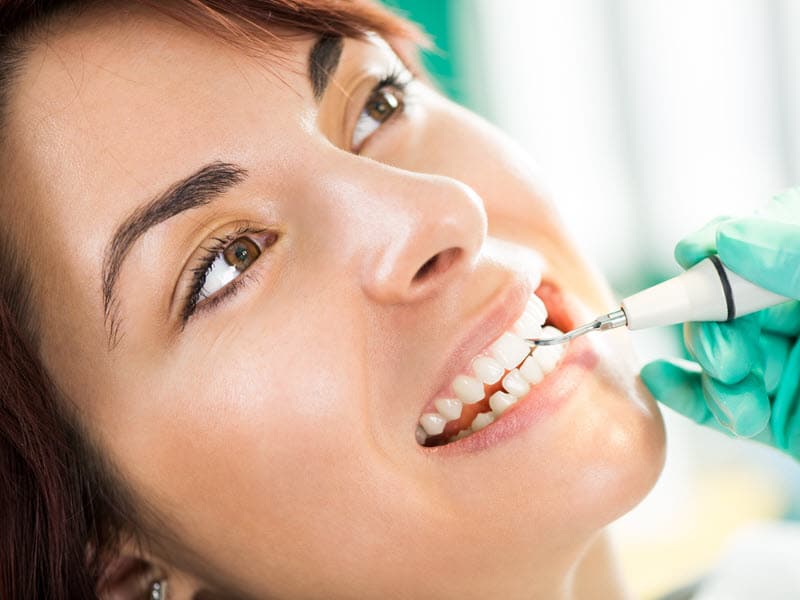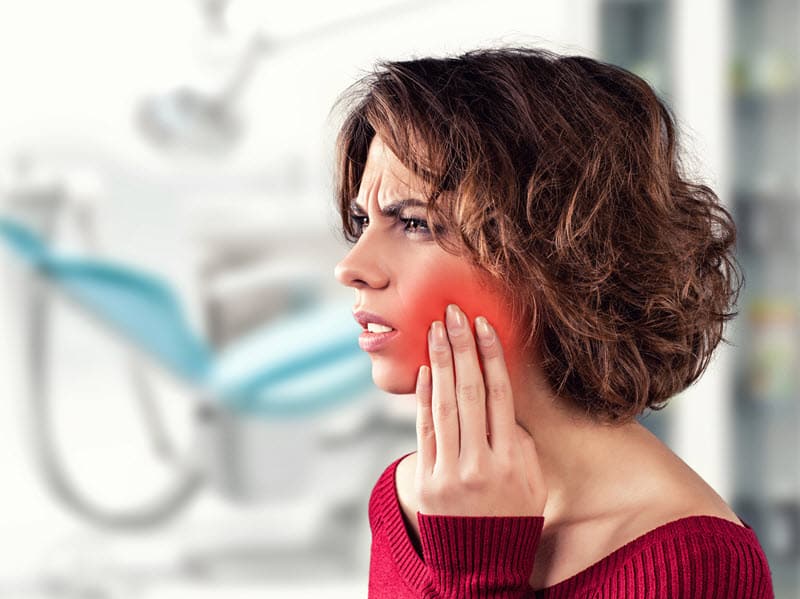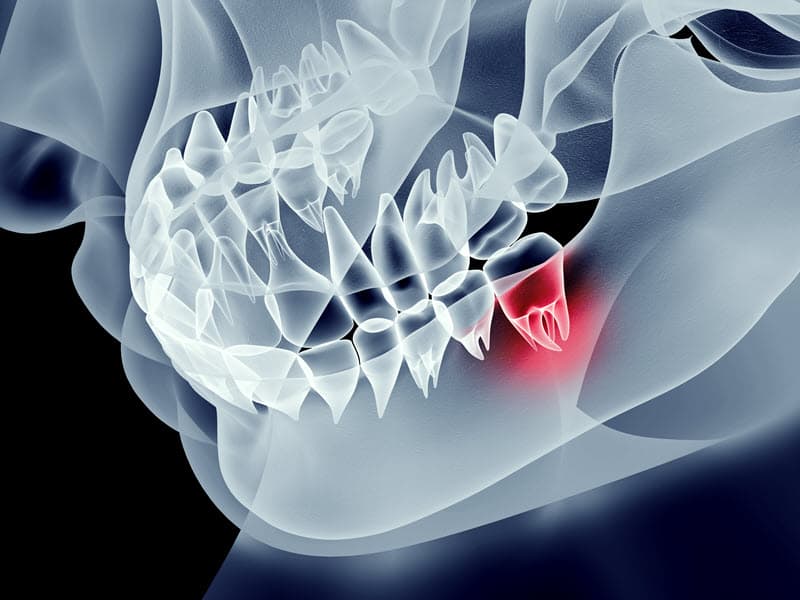Importance of Flipper Teeth Maintenance

Flipper Teeth are Generally Used as a Temporary Solution to Hide Missing Teeth Until a Dental Restoration Can be Performed
Maintaining flipper teeth is crucial for both oral health and the overall functionality of the dental appliance. Proper care ensures they remain clean and provide comfort while wearing.
Discuss the Consequences of Poor Maintenance on Oral Health
Poor maintenance of flipper teeth can lead to an accumulation of bacteria, which may cause infections, gum disease, and contribute to decay. Neglected flipper teeth become a breeding ground for harmful microorganisms that compromise dental health. The consequences of allowing bacteria to thrive include bad breath, inflammation of the gums, and potential risks to surrounding teeth.
How Proper Care Can Extend the Lifespan of Flipper Teeth
All the different types of flipper teeth can last longer with proper cleaning and handling. Regular rinsing and brushing prevent the build-up of bacteria and extend the longevity of the appliance. Notably, individuals who enact a stringent maintenance routine are less likely to incur additional costs due to frequent replacements. Comfort and fit also largely depend on the diligence of daily care to prevent wear and tear on both the gums and the flipper teeth themselves.
Relationship Between Maintenance and Comfort
The relationship between maintenance and comfort is integral to the use of flipper teeth. A clean and well-maintained flipper not only ensures oral health but also provides a comfortable fit by preventing irritation and injuries to the gum tissue. Inadequate care can result in an uncomfortable appliance that may cause soreness or rubbing, leading to an aversion to wearing the device altogether. Thus, proper maintenance directly impacts the level of comfort experienced by the wearer.
Daily Cleaning Tips for Flipper Teeth

This Cleaning Routine Used for Dentures Can Also Apply to Flippers
Maintaining flipper teeth through regular cleaning is essential for oral health and the longevity of the dentures. Daily care not only ensures cleanliness but also aids in comfortable and hygienic use.
Step-by-Step Guide on Daily Cleaning Procedures
Step 1: Remove the flipper teeth from your mouth and rinse them under warm water to eliminate loose food particles.
Step 2: Apply a denture cleaner—not regular toothpaste, as it can be abrasive—to a soft-bristled toothbrush.
Step 3: Gently brush all surfaces of the flipper teeth, paying close attention to crevices where bacteria may accumulate.
Step 4: After thoroughly brushing the flipper, rinse it again with warm water to remove any residue from the cleaning agent.
Step 5: Soak the flipper teeth in a denture-cleaning solution while not in use, following the product’s instructions.
Recommended Products for Cleaning and Disinfecting Flipper Teeth
Selecting the appropriate products is crucial for effective cleaning:
- Denture Cleaner: These are specifically formulated for devices like flipper teeth and can help in maintaining their cleanliness without causing damage.
- Soft-Bristled Toothbrush: A soft toothbrush ensures gentle cleaning, minimizing the risk of scratching the denture surface.
Tips on Safe Handling to Avoid Damage During Cleaning
- Always clean over a sink filled with water or a soft towel to cushion the fall and prevent breakage if the flipper teeth are accidentally dropped.
- Do not use hot or boiling water for cleaning, as it can warp the flipper teeth, altering their fit.
By following these daily cleaning tips with the right techniques and products, one can extend the life and comfort of flipper teeth while ensuring proper oral hygiene.
Deep Cleaning and Disinfecting Flipper Teeth

A Dental Professional Giving Dentures a Thorough Cleaning
Maintaining flipper teeth through proper deep cleaning and disinfecting is crucial for oral hygiene and to prevent issues like bacteria buildup and unpleasant odors. By adopting a meticulous cleaning routine, wearers can ensure the longevity and comfort of their dental prosthetics.
In the Previous section, we discussed requirements for daily cleanings of your flipper teeth. Here, we discuss deep cleanings. Deep cleanings are more thorough cleanings that are required in order to maintain the cleanliness and functionality of your flipper teeth.
How Often Deep Cleaning Should Be Performed
It’s recommended to deep clean flipper teeth at least once a week to maintain oral health and function. This routine helps eradicate hidden bacteria that daily brushings might miss. Regular maintenance also contributes to the durability and integrity of the flipper teeth, ensuring they remain a hygienic and aesthetic solution.
Methods for Disinfecting Without Causing Damage
To disinfect flipper teeth appropriately:
- As with your daily cleanings, you will be using a soft-bristled brush and non-abrasive cleaning solution.
- The American Dental Association recommends soaking the flipper in a dentist-recommended denture-cleaning solution, which is designed to kill bacteria without damaging the appliance. Sticking to these recommended denture cleaners – using unapproved harsh cleaners could damage your flipper teeth.
- As with your daily cleanings, you want the water to be warm, but never hot. Hot water can warp the material.
Importance of Removing Bacteria and Preventing Odor
Removing bacteria is paramount as it prevents infections and maintains a healthy oral environment. Soaking the flipper teeth not only disinfects them but also helps to prevent odor. Maintaining the cleanliness of your flipper helps preserve your overall oral hygiene, ensures comfort, and keeps your smile fresh.
Proper Storage of Flipper Teeth
Ensuring your flipper teeth remain in optimum condition when not in use hinges on proper storage methods. These techniques prevent damage and maintain the shape and function of your removable partial denture.
Best Practices for Storing Flipper Teeth When Not in Use
One must always remove flipper teeth before sleeping or any prolonged period where they are not being worn. It’s recommended to immerse flipper teeth in water to prevent them from drying out, which can cause them to lose their shape. Those who use flipper teeth should clean them thoroughly before storage, as residual bacteria can cause odors and deteriorate the material quality over time.
Flipper Teeth Containers
It is important to store flipper teeth in a sealed container that is specifically designed for denture storage. These containers should be filled with a mild denture-soaking solution or plain water to keep the flipper moist and maintain its shape. Avoid using hot water, as it can warp the acrylic material of the flipper teeth. Containers should also be kept clean to prevent contamination.
Tips to Prevent Warping and Damage During Storage
To preserve the integrity of flipper teeth:
- Avoid exposing them to extreme temperatures, as this can lead to warping.
- Keep the storage container in a safe location where it cannot be knocked over or bear heavy weights.
- Change the water or denture-soaking solution daily to prevent bacterial growth.
Maintaining Oral Hygiene with Flipper Teeth
Flippers are a commonly used temporary replacement for missing teeth, and the care you take in maintaining them can have an impact on your overall oral health. Proper hygiene practices are essential not only for the longevity of the flipper but also for the health of your gums and remaining natural teeth.
Importance of Maintaining the Health of Remaining Natural Teeth and Gums
The health of your natural teeth and gums is paramount when using flippers. Neglecting the oral hygiene of your remaining teeth can lead to problems such as gum disease and further tooth loss. It’s important to maintain a clean environment in your mouth to support the gum health around the flipper and the adjacent natural teeth. Regular brushing and flossing play a crucial role in removing plaque and preventing infection.
Recommendations for Oral Hygiene Routines While Using Flipper Teeth
For those using flipper teeth, it’s recommended to establish a diligent oral hygiene routine. This should include:
- Brushing natural teeth twice a day with a soft-bristled toothbrush
- Gently cleaning the flipper with a toothbrush and non-abrasive cleaner
- Flossing daily to remove debris between teeth and near the gumline
- Rinsing with water after meals to clear away food particles
Taking these steps helps ensure that the flipper, along with the rest of the mouth, stays clean and contributes to overall health.
Recurring Dental Check-Ups to Maintain Oral Health
Regular dental check-ups are vital for everyone, including individuals with flipper teeth. These check-ups allow the dentist to monitor the fit and condition of the flipper, assess the health of the gums, and provide professional cleaning.
It is important to schedule these visits routinely because a dentist can offer advice on how to address challenges that may arise with oral hygiene and flippers.








